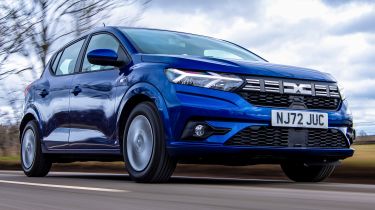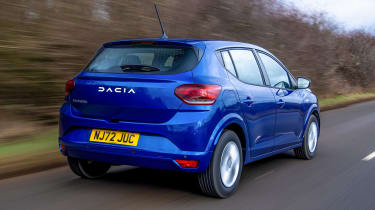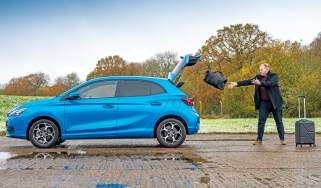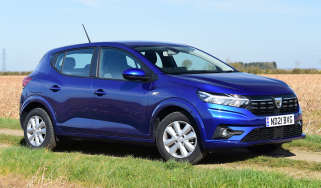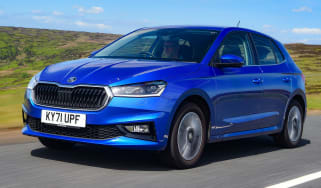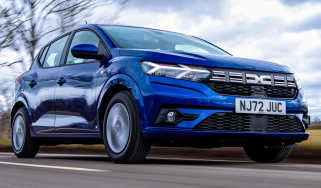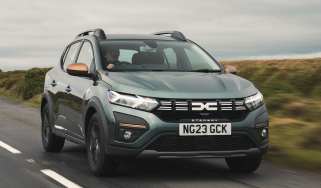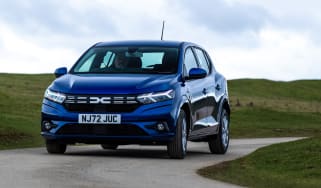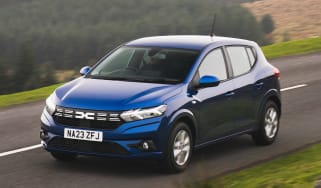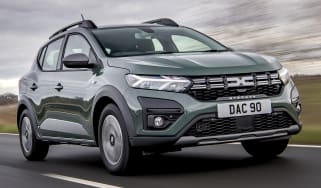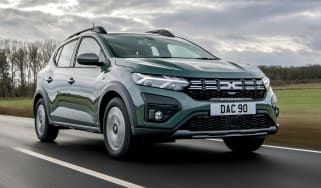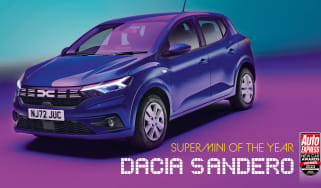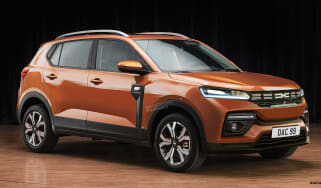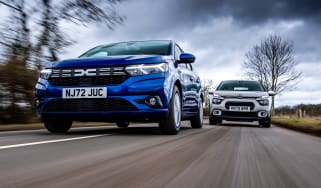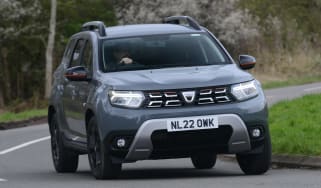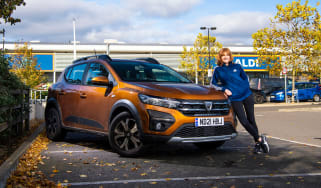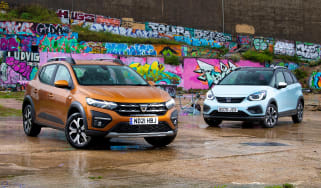Dacia Sandero review
A spacious interior and refined driving manners show there’s more to the Dacia Sandero than just the price

Dacia claims its focus is making quality new cars affordable, and the latest Sandero is the epitome of that mission statement. The value-focused supermini remains one of the UK’s cheapest cars, even after subtle refinements to the Sandero’s styling, cabin, running gear, and specification.
The Dacia Sandero continues to offer great practicality for cost-conscious buyers. It even makes sense for those choosing the higher specification versions, because its low running costs shouldn’t leave them out of pocket. They say the most simple ideas are often the best, and despite not being one of those trendy small SUVs (there is a pseudo-SUV version called the Stepway, if you want), Dacia’s well-judged, great-value supermini is right up there with the best in the class.
About the Dacia Sandero
Dacia was founded in 1966, but the Romanian carmaker didn’t officially launch in the UK until 2013. It has always been laser-focused on offering new levels of family car affordability – in fact, its first TV advert proudly declared: “We don’t do frivolity; function’s our thing,” before stamping the £5,995 Sandero list price across the screen. For those on a budget who didn’t want to deal with a used car's potential wear and tear costs, the Sandero was a hard proposition to resist.
Dacia has sold over eight million cars worldwide, including 250,000 in the UK alone, and things are looking even better for customers with the latest, third-generation Sandero supermini. The brand has implemented a raft of engineering changes and tech updates that give the Sandero a modern, more up-to-date feel, yet crucially, prices are still extraordinarily low. This package has only been made to look more appealing because, like the brand’s entire lineup, the Sandero has received sharper styling, a revised headlight design, and an interlinked Dacia logo.
More reviews
Car group tests
In-depth reviews
Long-term tests
Road tests
Used car tests
With a fresh look and a little extra finesse, the Sandero poses serious questions for buyers looking towards pricier rivals. The Skoda Fabia, Volkswagen Polo, Hyundai i20 and closely related Renault Clio all rival the Dacia for size, but can’t compete on price, with an entry-level version of all four still costing thousands more than a top-spec Sandero. The only similarly sized supermini that comes close to the Sandero’s value package is the base Citroen C3, although the Sandero still undercuts the C3 on price by a few hundred pounds.
The Sandero range starts from a little under £14,000 in Essential spec. This gets you air-con and remote central locking, plus cruise control, DAB and Bluetooth connectivity, but no touchscreen. It does not have an alarm or electrically adjustable and heated door mirrors like the base C3 You!, but the entry-level Sandero does have the added convenience of rear parking sensors to make parking that little bit easier.
Mid-range Expression trim is the best value Sandero in our opinion, despite costing around £15,000. For that, you get some smart grey fabric accents and some upgraded upholstery that gives the interior a classier feel, along with an eight-inch touchscreen with Android Auto and Apple CarPlay connectivity, plus a rear-view camera.
The top-of-the-range Journey comes in at around £16,000, and features sat-nav, climate control, front parking sensors, and a blind spot warning system.
If you're after a little extra SUV style, the Sandero Stepway comes with a raised ride height and rugged exterior trim for only a small price premium. The trim levels remain largely the same as the regular Sandero, besides some Stepway-specific seat fabric and some exterior styling tweaks. The only major change is that the top-of-the-range Sandero Stepway is called Extreme rather than Journey.
All Sandero models have a 1.0-litre turbocharged engine in TCe 90 or TCe 100 Bi-Fuel forms. The former is the more astute choice anyway, with 89bhp, a useful extra slug of torque and fuel economy of up to 53.3mpg.
The TCe 100 Bi-Fuel unit is a great idea for taking advantage of the cost-saving benefits of LPG tech. Choosing this version means you can’t specify a spare wheel, but you gain a 40-litre LPG fuel tank instead, giving this version an exceptionally long range. However, you’ll need to live near a filling station that offers such fuel; otherwise, it becomes inconvenient to go out of your way to find fuel.
The TCe 90 and TCe 100 Bi-Fuel cars are paired with a five-speed manual gearbox, but the TCe 90 is also available with a CVT automatic if you go for the priciest Journey trim. Choose the SUV-inspired Sandero Stepway, and you’ll get a six-speed manual as standard, with the option of a CVT auto on the most expensive Extreme version.

